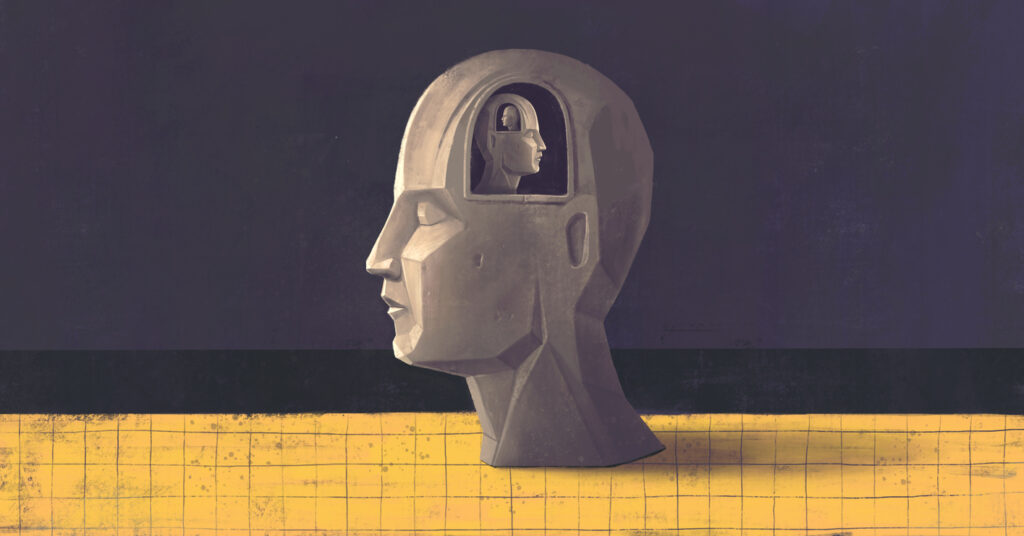Culture is defined as a set of behaviours we identify with – the ideas, customs and social behaviour of a particular people or society.
Dutch psychologist Geert Hofstede once said culture is the “collective programming of the mind” that sets one society apart from another.
We often take this for granted, however, until we encounter a different culture, and the contrast brings it to our attention. This is where cultural intelligence comes into play.
What is cultural intelligence?
There are four key capabilities that form the Cultural Intelligence Framework (S. Ang & L. Van Dyne):
CQ gives us the skills to accurately interpret the behaviours and respond appropriately.
- CQ drive: Your level of interest, persistence, and confidence during multicultural interactions.
- CQ knowledge: Your understanding of how cultures are similar and different.
- CQ strategy: Your awareness and ability to plan for multicultural interactions.
- CQ action: Your ability to adapt when relating and working in multicultural contexts.
Cultural intelligence versus emotional intelligence
Aristotle wrote: “Anybody can become angry; that is easy. But to be angry with the right person and to the right degree and at the right time and for the right purpose, and in the right way – that is not within everybody’s power and is not easy.”
This really is the summary of emotional intelligence (EQ) and cultural intelligence (CQ).
The research says that EQ and CQ are correlated.
The four capabilities of cultural intelligence are related to the four factors of emotional intelligence:
- Self-awareness
- Self-management
- Social awareness
- Relationship management
Essentially, CQ picks up from where EQ leaves off.
A person with high EQ grasps what makes us human and at the same time what makes each of us different from one another.
A person with high CQ can somehow tease out of a person’s or group’s behaviour those features that would be true of all people and all groups, those peculiar to this person or this group, and those that are neither universal nor idiosyncratic (C Earley, E Mosakowski).
The best of both worlds
EQ helps regulate frustrations that can sometimes come from working with what is unfamiliar to us.
CQ is that secret sauce to maximising the human experience, because it is the ability to work and relate effectively with those who are different from us.
CQ gives us the skills to accurately interpret the behaviours and respond appropriately. CQ is a stronger predictor of leadership effectiveness in diverse situations because it gives us the capability to adjust how to garner trust and likability when there are diverse cultural values and identities present.
The ideal scenario is when we use both EQ and CQ because the two forms of intelligence interact with each other. Individuals who score high in both forms of intelligence are predicted to adjust to diverse situations most successfully. (D. Livermore)
CQ and the people profession
The most important charge of a people leader is to unlock the potential of their people. How can this happen unless people are understood for who they really are and what they can bring to the table because of their unique experiences and perspectives?
Unless we maximise the human experience, we fail to optimise human performance.
There is no substitute to immersing yourself in experiences and situations that are unfamiliar.
CQ is that secret sauce to maximising the human experience, because it is the ability to work and relate effectively with those who are different from us.
CQ helps us to take away the relationship conflict so we can get down to the task conflict; the good part that helps us become innovative and creative.
The ingredients for a culturally intelligent workforce
In culturally diverse situations, CQ predicts:
- Personal adjustment and adaptability
- Better judgment and decision making
- Negotiation effectiveness
- Trust, idea sharing and innovation.
- Leadership effectiveness
- Profitability and cost-savings
Improving CQ
The good news is that like EQ, CQ can be developed. The three complementary strategies that can help people develop CQ are:
1. Experience and reflection
There is no substitute to immersing yourself in experiences and situations that are unfamiliar.
For example, travelling by local transport, having a meal with someone very different from you or finding opportunities to work with those who are different from you.
A myriad of these experiences, coupled with thoughtful reflection about what was experienced and observed, is one way to build CQ.
We all can, and should, cultivate and nurture our CQ.
2. Personal CQ development plans
Individuals can take the CQ assessment and create a development plan based on their scores. Bear in mind that the information from the assessments needs reflection and accountability.
Training and coaching are useful only when participants take personal ownership to develop a plan and follow it.
3. Training and coaching
Training and coaching for individuals and organisations must be based on their specific requirements and challenges. Diagnostic tool-based training workshops, in particular, are a great way to support leaders and organisations to become culturally intelligent.
Some people can work more effectively than others in new and unfamiliar cultures because, according to empirical evidence, a person with high CQ, whether cultivated or innate, can understand these situations, persist and do the right things when needed.
We all can, and should, cultivate and nurture our CQ.
If you enjoyed this, read: The cultural symbols holding back your organisation’s coaching.
Culture is defined as a set of behaviours we identify with – the ideas, customs and social behaviour of a particular people or society.
Dutch psychologist Geert Hofstede once said culture is the “collective programming of the mind” that sets one society apart from another.
We often take this for granted, however, until we encounter a different culture, and the contrast brings it to our attention. This is where cultural intelligence comes into play.
What is cultural intelligence?
There are four key capabilities that form the Cultural Intelligence Framework (S. Ang & L. Van Dyne):
CQ gives us the skills to accurately interpret the behaviours and respond appropriately.
- CQ drive: Your level of interest, persistence, and confidence during multicultural interactions.
- CQ knowledge: Your understanding of how cultures are similar and different.
- CQ strategy: Your awareness and ability to plan for multicultural interactions.
- CQ action: Your ability to adapt when relating and working in multicultural contexts.
Cultural intelligence versus emotional intelligence
Aristotle wrote: “Anybody can become angry; that is easy. But to be angry with the right person and to the right degree and at the right time and for the right purpose, and in the right way - that is not within everybody’s power and is not easy.”
This really is the summary of emotional intelligence (EQ) and cultural intelligence (CQ).
The research says that EQ and CQ are correlated.
The four capabilities of cultural intelligence are related to the four factors of emotional intelligence:
- Self-awareness
- Self-management
- Social awareness
- Relationship management
Essentially, CQ picks up from where EQ leaves off.
A person with high EQ grasps what makes us human and at the same time what makes each of us different from one another.
A person with high CQ can somehow tease out of a person’s or group’s behaviour those features that would be true of all people and all groups, those peculiar to this person or this group, and those that are neither universal nor idiosyncratic (C Earley, E Mosakowski).
The best of both worlds
EQ helps regulate frustrations that can sometimes come from working with what is unfamiliar to us.
CQ is that secret sauce to maximising the human experience, because it is the ability to work and relate effectively with those who are different from us.
CQ gives us the skills to accurately interpret the behaviours and respond appropriately. CQ is a stronger predictor of leadership effectiveness in diverse situations because it gives us the capability to adjust how to garner trust and likability when there are diverse cultural values and identities present.
The ideal scenario is when we use both EQ and CQ because the two forms of intelligence interact with each other. Individuals who score high in both forms of intelligence are predicted to adjust to diverse situations most successfully. (D. Livermore)
CQ and the people profession
The most important charge of a people leader is to unlock the potential of their people. How can this happen unless people are understood for who they really are and what they can bring to the table because of their unique experiences and perspectives?
Unless we maximise the human experience, we fail to optimise human performance.
There is no substitute to immersing yourself in experiences and situations that are unfamiliar.
CQ is that secret sauce to maximising the human experience, because it is the ability to work and relate effectively with those who are different from us.
CQ helps us to take away the relationship conflict so we can get down to the task conflict; the good part that helps us become innovative and creative.
The ingredients for a culturally intelligent workforce
In culturally diverse situations, CQ predicts:
- Personal adjustment and adaptability
- Better judgment and decision making
- Negotiation effectiveness
- Trust, idea sharing and innovation.
- Leadership effectiveness
- Profitability and cost-savings
Improving CQ
The good news is that like EQ, CQ can be developed. The three complementary strategies that can help people develop CQ are:
1. Experience and reflection
There is no substitute to immersing yourself in experiences and situations that are unfamiliar.
For example, travelling by local transport, having a meal with someone very different from you or finding opportunities to work with those who are different from you.
A myriad of these experiences, coupled with thoughtful reflection about what was experienced and observed, is one way to build CQ.
We all can, and should, cultivate and nurture our CQ.
2. Personal CQ development plans
Individuals can take the CQ assessment and create a development plan based on their scores. Bear in mind that the information from the assessments needs reflection and accountability.
Training and coaching are useful only when participants take personal ownership to develop a plan and follow it.
3. Training and coaching
Training and coaching for individuals and organisations must be based on their specific requirements and challenges. Diagnostic tool-based training workshops, in particular, are a great way to support leaders and organisations to become culturally intelligent.
Some people can work more effectively than others in new and unfamiliar cultures because, according to empirical evidence, a person with high CQ, whether cultivated or innate, can understand these situations, persist and do the right things when needed.
We all can, and should, cultivate and nurture our CQ.
If you enjoyed this, read: The cultural symbols holding back your organisation’s coaching.








